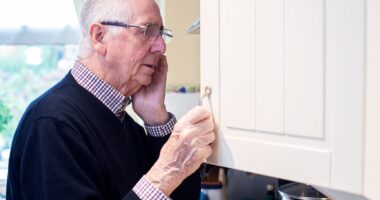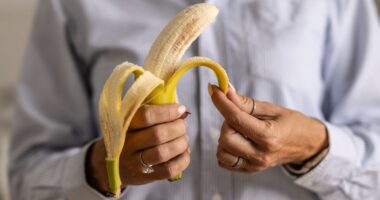Twin Dallas doctors have pleaded guilty to scamming insurance firms out of $45million by giving thousands of patients pricey pain-relief shots that didn’t even penetrate the skin.
Brothers Deno Barroga and Desi Barroga, 51, claimed that the injections they offered contained corticosteroid injections – anti-inflammatory drugs used to treat a host of conditions including arthritis, sciatica and back pain.
Thousands of patients would attend their clinic on a monthly basis, with treatment funded by major injurers including Blue Cross Blue Shield, Cigna and United Healthcare.
But a legal investigation revealed that the twins, who specialize in rehabilitation, were pressing needles against patients’ skin without injecting, and rubbing the spot with a local anesthetic, presumably to mimic the uncomfortable feeling of a shot.


Brothers Deno Barroga and Desi Barroga, 51, admitted to defrauding health insurance companies by submitting claims for corticosteroid injections – anti-inflammatory drugs to treat arthritis – which they never gave

In 2016, Dr Deno Barrogas (pictured) was ordered to pay a $3,000 fine and undergo a physician prescribing course after the board found he wrongly prescribed controlled substances and other medications to his patients
The Barrogas told insurance companies that they performed up to 80 corticosteroid injections per patient, per visit.
The twins made fake medical records, which were typically often cut and pasted, or cloned, from patient to patient with minimal changes.
They also told patients to include false statements about the injections and other treatments in the record.
The Barrogas admitted to billing insurers at least $45million and were paid at least $9million between early 2016 and late 2022.
The men are now awaiting sentencing and face up to 10 years each in federal prison.

As part of the scheme, the doctors would ask patients to visit their office monthly to receive pain management drugs, including hydrocodone, oxycodone, and morphine
They have both given up their DEA registrations and been forced to forfeit their medical licenses at least 14 days prior to sentencing.
The doctors, whose office was at 7515 Greenville Ave in Dallas, Texas, have previously come under scrutiny.
In 2021, Desi was put on a remedial plan – a settlement to resolve an investigation – after the Texas Medical Board found he did not properly maintain medical records, patient history, and examination details.
It was also ruled that he failed to provide an acceptable rationale for prescribing controlled substances, including fentanyl patches, to a patient.
Meanwhile, in 2016, Deno was ordered to pay a $3,000 fine and undergo a physician prescribing course after the board found he wrongly prescribed controlled substances and other medications to his patients.









